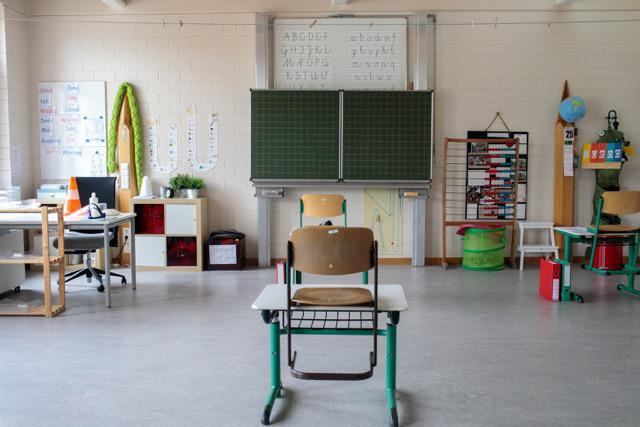“It’s a time to be worried and a time for serious concern,” Meisch said during a press conference, explaining that the spread of the coronavirus had changed since the second wave of infections last year.
“In the autumn it was possible to contain infections quickly. This is no longer possible,” Meisch said, adding that clusters in schools were bigger and growing faster than before. New data shows that in 25 to 30% of cases diagnosed among pupils and staff the virus was transmitted within the school, the minister said. This was up from 10 to 15% last year.
Afterschool care facilities and activities will be suspended starting this weekend, Meisch said, except for outdoor sports and individual exams scheduled at music schools.
Crèches will stay open as they don’t show the same trend as primary schools, the education minister said. However, quarantine rules will be tightened, he said. Previously, pupils could continue attending crèche in case of an isolated infection. The affected group was separated within the building but will now have to quarantine at home.
Infections among people aged below 19 were climbing faster than among the general population, the minister said. Cases in that age group jumped to 260 last week from 158 the week before.
While number of infections was lower overall than before the Christmas holidays, there were more clusters, Meisch said. “We risk having this situation in all schools,” the minister said, adding that the weeks until after the carnival holiday would be used to analyse the data further and examine new health concepts.
Schools are on break from 13 to 21 February although secondary school students will be off starting next week except those in their final year, who are expected to attend. But students and teachers will be issued invitations to get tested as a precaution.
The government over the last two weeks quarantined numerous primary school years and classes. “It’s a phenomenon that is limited to a few locations,” Meisch said. “But in the schools where we have such a situation, things happened very quickly.”
He also urged families to limit their social contacts during the time away from school.
“We must assume that in the next weeks and months the UK and other variants will become dominant and fear that the situation, which today is an exception, will become the norm,” Meisch said.
The ministry is awaiting results of tests within the clusters where some UK variant cases were already identified, to be able to better assess the spread of these more aggressive mutations.
Parents of children aged 4 to 13 who have no other childcare options can request special parental leave while their children are ordered to stay home.
